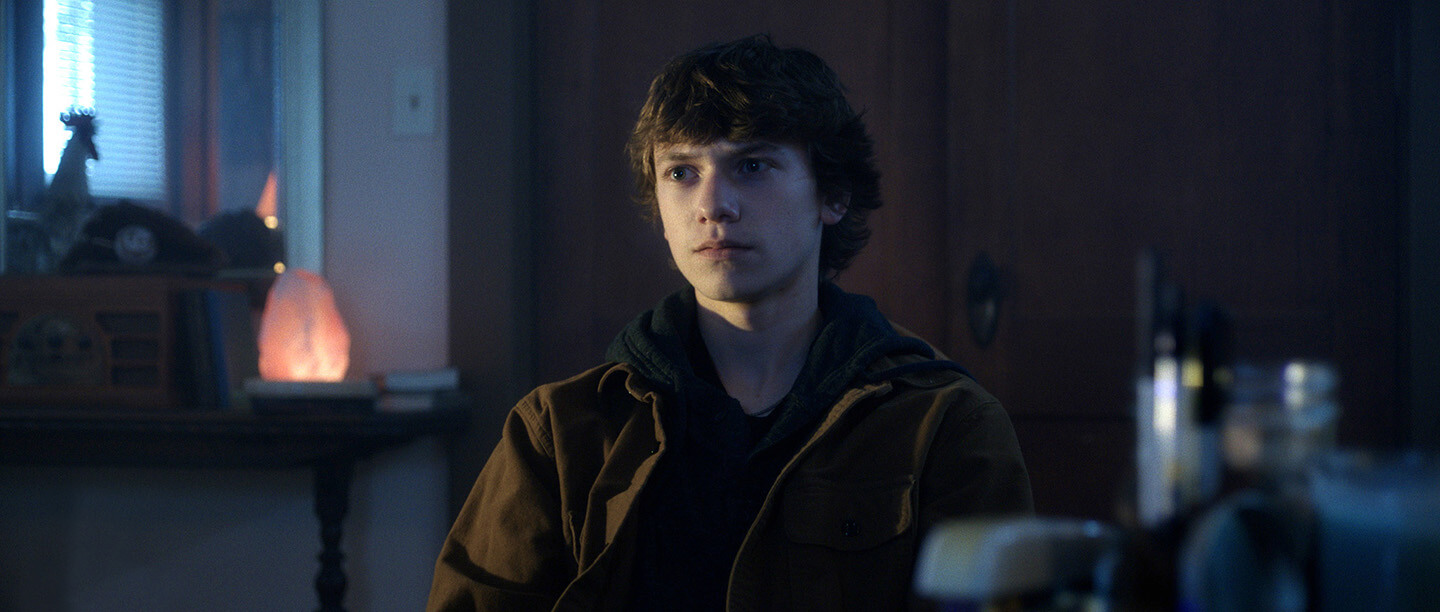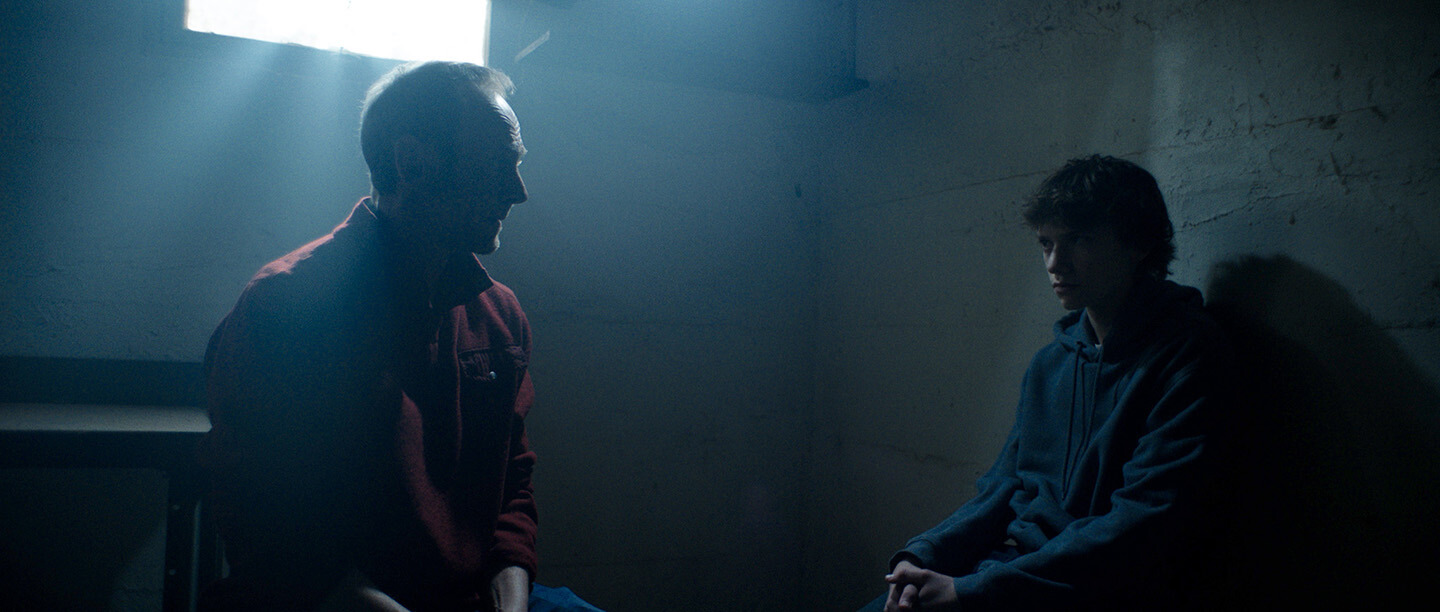Chris Oz McIntosh’s Flint is a 29-minute psychological thriller surrounding a boy in a group home where his misfortunes are almost comically extreme. Told in a non-linear sequence of events that tries to retrace the conclusion to its origins, the film gives the feeling that something is missing—as if its troubled protagonist had time enough only to recount these snatches of time before his might run out.
The title derives itself from the perversion of an Iroquoian view about nature and balance. In every way the antithesis of a film like the 2013 feature Short Term 12 (or Room, for that matter, since we are thinking of Brie Larson’s kid films), Flint is exactly about the void where catharsis should be. In fact, we even get a literal void. A hole in the ground from a distance, an empty cellar up close, staring up at the sky with some malice in it that really should not unsettle as much as it does.

Michael Sloyka’s writing demonstrates the threat from the get go. Owen Trumbly plays Scotty, a young teenager yet to even break into facial hair, he has already picked up the look of someone beaten down and then kicked some more for good measure. His Dickensian background is sketched out, but it merely verbalises what is already obvious: this is not a boy who goes looking for trouble. Opposite him, P.J. Sosko is Eric, the head counsellor of the home. He is subversive, the kind who will “accidentally” let you have your fun and never let himself get in trouble for it. He has the cool stories, the right words, and a way with parents, staff, and strangers alike. In short, the opposite of friendless, glum Scotty. The performances make good use of the half hour runtime. Trumbly is as crushingly vulnerable as Sosko is magnetic, and that right there should tell you where this path travels to.

Despite a certain haste, Flint is compelling, the environment oppressive in a way that provokes the desire to cry in despair and know all the while that there is no relief ahead. Chekhov’s cellar makes its bloody return the night of the climax, although calling it a climax might mischaracterise the narrative to some degree.
It is a slow burn of not quite horror, not exactly tragedy—the word reeks of flimsy pity of unaffected newsreaders; perhaps it is best described as nothing more than a brief highway hullabaloo over an escaped pig headed for slaughter. The return to order is inevitable. The newsreader will term it a local tragedy.
Flint: A Narrative of the Tales We Tell Ourselves About Morality
-
Direction
-
Cinematography
-
Screenplay
-
Editing
-
Music















